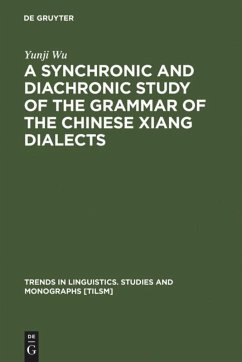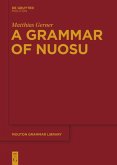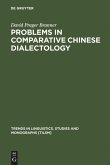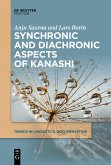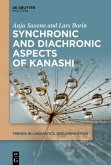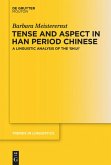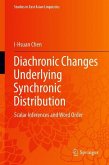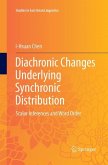This is the first book in Chinese linguistics which discusses the grammar of a dialect group, in this case the Xiang dialect spoken in Hunan, from both a synchronic and diachronic prespective. The author uses new data and new frameworks to present her analysis. The synchronic part covers contemporary grammar across localities within the Xiang-speaking area by using the methods and theories of comparative and typological linguistics. The diachronic analysis reconstructs earlier grammatical systems based mainly on modern data but also on historical written records, and analyses the development of the syntactic systems of the Xiang dialects, adopting the methods and theories of historical linguistics and grammaticalization.
The discussions in this book raise new issues on dialect research which have not yet been fully acknowledged by Chinese dialectologists. The author shows, for example, how the earlier layers of grammar may be reconstructed on the basis of modern data,and how the path of grammaticalization of functional words may be traced. The discussions reveal that the Xiang dialect group forms a transitional zone between northern and southern dialects. The syntactic constructions in these two areas often co-exist or are mingled in Xiang. Thus, the grammatical constructions in different localities of the Xiang dialect group often provide a bridge connecting the constructions of northern and southern Chinese, or Modern Chinese and Chinese of earlier periods.
This book is of interest to scholars and students who are working on grammar, dialectology, historical linguistics, comparative linguistics, typological linguistics, and grammaticalization, as well as those researchers focusing on language policy, language acquisition, and education.
The discussions in this book raise new issues on dialect research which have not yet been fully acknowledged by Chinese dialectologists. The author shows, for example, how the earlier layers of grammar may be reconstructed on the basis of modern data,and how the path of grammaticalization of functional words may be traced. The discussions reveal that the Xiang dialect group forms a transitional zone between northern and southern dialects. The syntactic constructions in these two areas often co-exist or are mingled in Xiang. Thus, the grammatical constructions in different localities of the Xiang dialect group often provide a bridge connecting the constructions of northern and southern Chinese, or Modern Chinese and Chinese of earlier periods.
This book is of interest to scholars and students who are working on grammar, dialectology, historical linguistics, comparative linguistics, typological linguistics, and grammaticalization, as well as those researchers focusing on language policy, language acquisition, and education.

